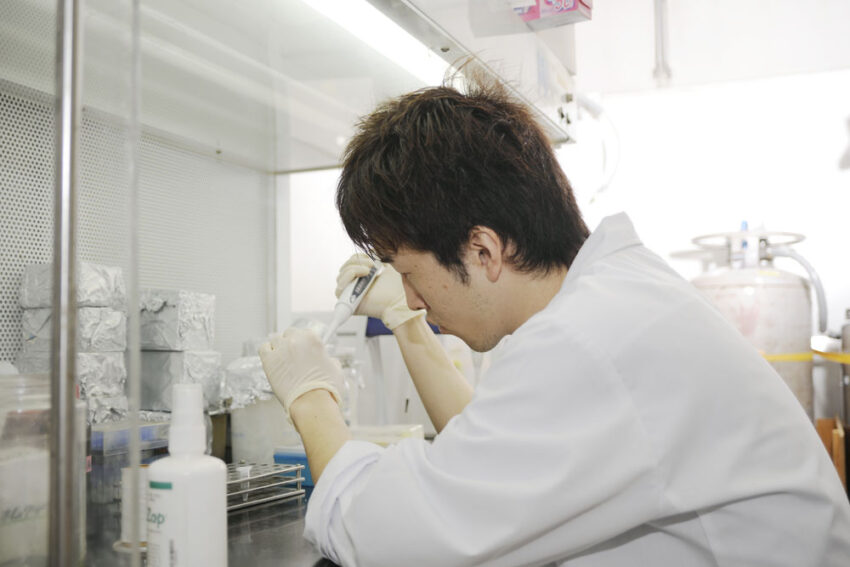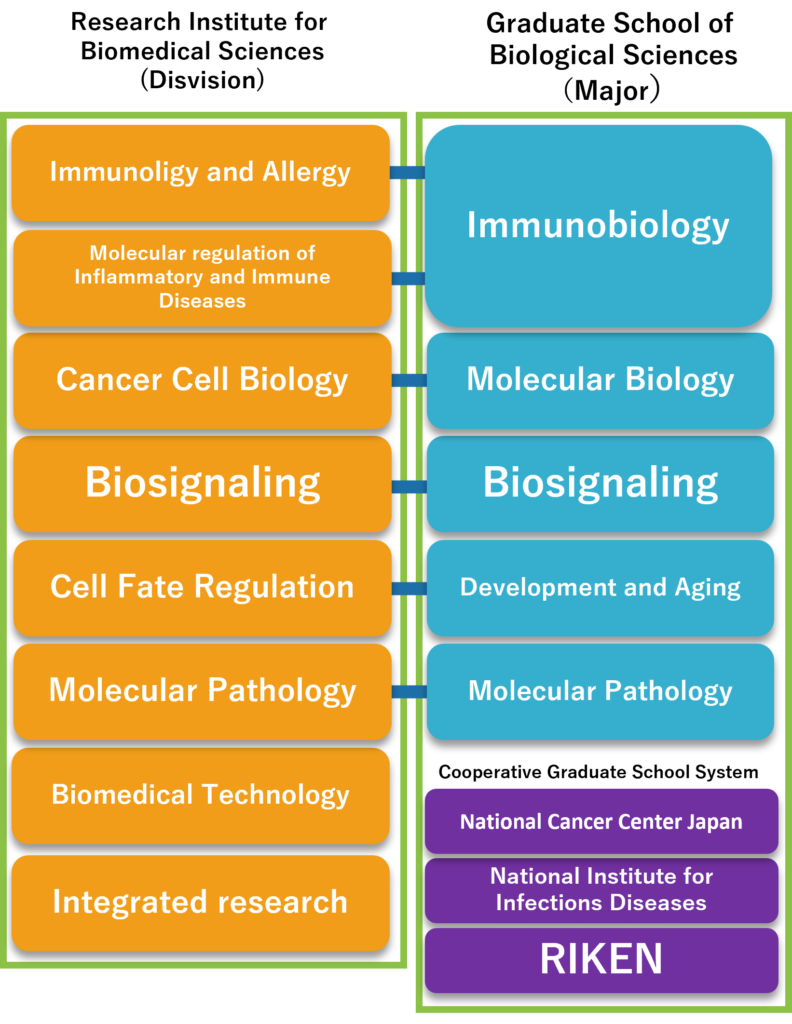Education
Director Message
under construction
About Grad. School

Living organisms are highly organized entities constituting genes, cells and tissues. The dynamic changes along the time axis of the development, aging and regeneration of tissues and the adaptive system implemented in divergent organs such as the brain, nerves and immune systems represent a complex system. Therefore, a degree of hierarchical complexity that involves elaborate quality-control mechanisms and their interactive outputs characterize the living organisms. The disease is developed as a result of the perturbation of these complex systems. It is thus important for us to create novel biological concepts by bringing all the scientific knowledge and technologies of life science together to fully understand the complex biological systems. That is the ultimate goal of all members of our institute. In addition, our educational system in that the Graduate School of Biological Sciences is associated with the Research Institute for Biomedical Sciences also facilitates the research progress. The students can achieve scientific breakthroughs and acquire valuable skills by joining cutting-edge research groups headed by faculty members of the institute.
About Grad. Courses
The Department of Biological Sciences, which was established in 1997, is the only major of the Graduate School of Biological Sciences and is not associated with specific faculty. This department consists of the several research divisions of the institute, which scientific field of subjects cover molecular biology, immunobiology, biosignaling, molecular pathology, aging and experimental animal immunology. By utilizing the advanced facilities of the institute, the department provides specialized educational courses, especially basic medicine, immunology, neuroscience and cancer biology. The Graduate School of Biological Sciences aims to cultivate individuals being engaged in research activities without being bound by the conventional specialized fields and develop as a platform for “knowledge” of life sciences for bringing research accomplishments to the world. It is therefore welcomed that not only graduates of our university, which is a comprehensive science university, but also students who have learned the basics of science in different fields will gather from all over the world. Those students are actively engaged in research activities with support from faculty members in an environment where state-of-the-art facilities are available, learn the advanced life sciences, and are highly expected to be next-generation leaders of scientific communities in the future.
Philosophy / Purpose / Educational aims
We aim to “advance science and technology for the harmonious development of human society” through both educational and research activities on life sciences, and cultivate human resources that can contribute to creating better cultural life and welfare of human society. The master course is designed to educate students to elucidate the molecular mechanism of living organisms with a high degree of expertise and research abilities. The Ph.D. course is designed to educate students to create novel insights into prevailing frameworks through research activities with their own unique on their own unique approaches, leading to contribute to cultural development.
Diagram of Grad. School
The Graduate School of Biological Sciences, Tokyo University of Science is an academic course affiliated with the Research Institute for Biomedical Sciences, and students can study research subjects under the close association with each research department of the institute.

Class Subject
Please check the course list of the Graduate School of Biological Sciences on the Tokyo University of Science website.
Cooperation Graduate School
| Cooperative Graduate School System | |||
|---|---|---|---|
| Major | Name | Affiliation Institution | Research Area |
| Molecular Biology | Kazunori Aoki | National Cancer Center Japan | Molecular Oncology |
| Tetsuya Nakatsura | National Cancer Center Japan | Tumor Immunology | |
| Yoshimasa Takahashi | National Institute of Infectious Diseases | Infectious Immunology | |
| Immunobiology | Toshikazu Ushijima | National Cancer Center Japan | Epigenetics |
| Susumu Kobayashi | National Cancer Center Japan | Hematology Oncology | |
| Biosignaling | Hirofumi Fujii | National Cancer Center Japan | Molecular Imaging |
| Molecular Pathology | Molecular Pathology | National Cancer Center Japan | Tumor Diagnostics |
| Riu Yamashita | National Cancer Center Japan | Bioinformatics | |
| Takashi Saito | RIKEN | Immunology | |
Development and Aging |
Mamoru Kato | National Cancer Center Japan | Bioinformatics |
| Akihiro Ohashi | National Cancer Center Japan | Cancer Molecular Targeted Therapy | |
| Yoshihiro Shimoji | National Agriculture and Food Research Organization | Animal Mucosal Vaccine | |
| Yoshihiro Muneta | National Agriculture and Food Research Organization | Veterinary Applied Immunology | |
| Ken Maeda | National Institute of Infectious Diseases | Zoonotic Disease | |

